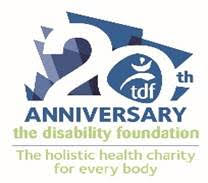 Counselling is based on using ordinary communication skills and aims to provide clients with an opportunity to work towards living in a more satisfying and resourceful way. It is a contractual arrangement where a counsellor meets a client in privacy and confidence to explore a difficulty or distress they may be experiencing, perhaps a dissatisfaction with life or a feeling that we may be a victim of circumstance and have no control over our life. Counselling is about working in an equal relationship, within a safe confidential environment enabling the client to explore their way of being and empowering individuals so that they have the freedom to move and choose their own direction.
Counselling is based on using ordinary communication skills and aims to provide clients with an opportunity to work towards living in a more satisfying and resourceful way. It is a contractual arrangement where a counsellor meets a client in privacy and confidence to explore a difficulty or distress they may be experiencing, perhaps a dissatisfaction with life or a feeling that we may be a victim of circumstance and have no control over our life. Counselling is about working in an equal relationship, within a safe confidential environment enabling the client to explore their way of being and empowering individuals so that they have the freedom to move and choose their own direction.
Counselling will help you make decisions but a counsellor will not tell you what to do. Counselling is only undertaken at the request of the client – no one can be “sent” for counselling and TDF does not accept bookings for clients if they are not made by the client themself.
Why choose Counselling?
Counselling is suitable for a wide variety of emotional conditions including:
- Major life changes such as bereavement and divorce
- Depression and anxiety
- Phobias
- Physical problems of a psychosomatic origin
- Eating disorders
- Relationship problems
- Personal development
- Emotional instability
- Emotional effects of serious ill health
Anyone of any age can have counselling. TDF’s Adults Counsellor does not see children, however, where appropriate, members can be referred to the Play Specialist.
What to expect during a counselling session?
A typical first counselling session may involve:
- An opportunity to discuss whether continued counselling would be appropriate for your news as the first session is generally without obligation on either side
- Discussion of practical considerations such as amount of sessions and whether counselling will be brief or long term. While deep-rooted problems may need a weekly session for several years, short-term work for a specific problem may only take a few weeks. In a few cases, one visit may be all that is needed.
- Clients should use this as a chance to ask questions, build up an idea of what is involved and make up your mind if this is a counsellor you can work with
Thereafter, a counsellor may use a variety of approaches including psychodynamic (working with the unconscious mind) and humanistic (based on a “non-directive approach”). Sessions may also involve other forms or creative expression.
When is it best NOT to have counselling?
Please note that counselling is not suitable for clients with:
- Severe cognitive difficulties
- Major mental health problems
- Severe learning difficulties
- Severe speech and language problems
Session Information
Sessions last approximately 50 minutes. No need to undress. Suitable for adults only.


